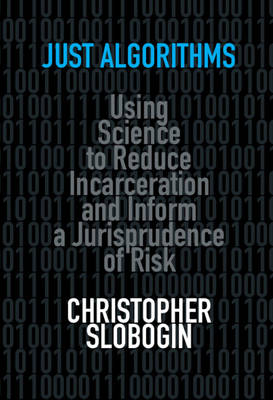
- Afhalen na 1 uur in een winkel met voorraad
- Gratis thuislevering in België vanaf € 30
- Ruim aanbod met 7 miljoen producten
- Afhalen na 1 uur in een winkel met voorraad
- Gratis thuislevering in België vanaf € 30
- Ruim aanbod met 7 miljoen producten
Zoeken
Just Algorithms
Using Science to Reduce Incarceration and Inform a Jurisprudence of Risk
Christopher Slobogin
Paperback | Engels
€ 64,95
+ 129 punten
Uitvoering
Omschrijving
Statistically-derived algorithms, adopted by many jurisdictions in an effort to identify the risk of reoffending posed by criminal defendants, have been lambasted as racist, de-humanizing, and antithetical to the foundational tenets of criminal justice. Just Algorithms argues that these attacks are misguided and that, properly regulated, risk assessment tools can be a crucial means of safely and humanely dismantling our massive jail and prison complex. The book explains how risk algorithms work, the types of legal questions they should answer, and the criteria for judging whether they do so in a way that minimizes bias and respects human dignity. It also shows how risk assessment instruments can provide leverage for curtailing draconian prison sentences and the plea-bargaining system that produces them. The ultimate goal of Christopher Slobogin's insightful analysis is to develop the principles that should govern, in both the pretrial and sentencing settings, the criminal justice system's consideration of risk.
Specificaties
Betrokkenen
- Auteur(s):
- Uitgeverij:
Inhoud
- Aantal bladzijden:
- 182
- Taal:
- Engels
Eigenschappen
- Productcode (EAN):
- 9781108984348
- Verschijningsdatum:
- 29/07/2021
- Uitvoering:
- Paperback
- Formaat:
- Trade paperback (VS)
- Afmetingen:
- 152 mm x 229 mm
- Gewicht:
- 249 g

Alleen bij Standaard Boekhandel
+ 129 punten op je klantenkaart van Standaard Boekhandel
Beoordelingen
We publiceren alleen reviews die voldoen aan de voorwaarden voor reviews. Bekijk onze voorwaarden voor reviews.







